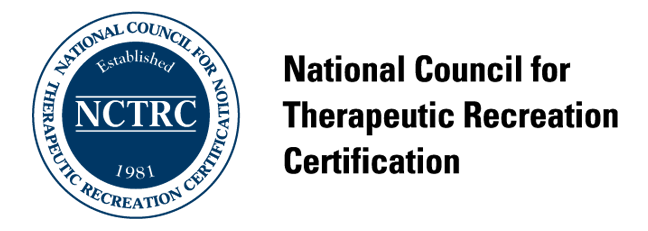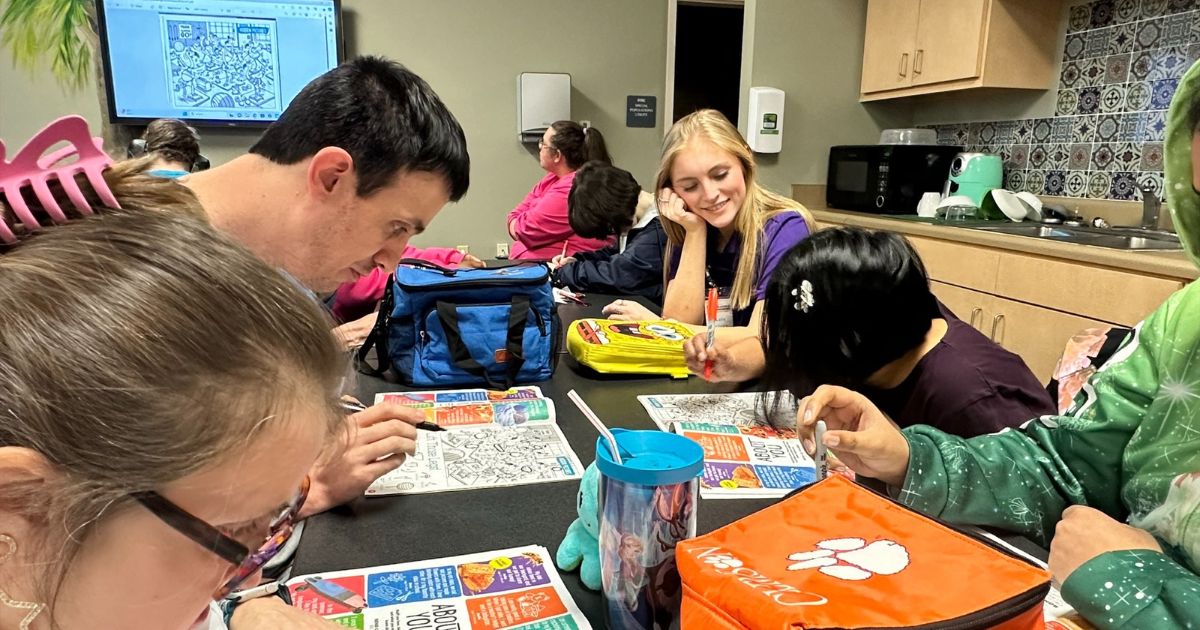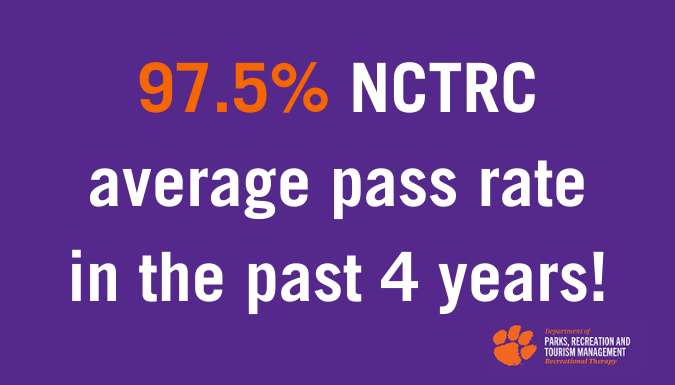Recreational Therapy

Our Bachelor of Science (B.S.) Recreational Therapy program is accredited by the Committee on Accreditation of Recreational Therapy Education (CARTE), through the Commission on Accreditation of Allied Health Education Programs (CAAHEP).

Program curriculum was also designed to meet standards set by the National Council for Therapeutic Recreation Certification (NCTRC).

Focus your career on improving health, wellbeing and quality of life.
Clemson University recreational therapy (CURT) prepare students to become recreational therapists with requisite cognitive (knowledge), psychomotor (skills), and affective (behaviors) learning domains to improve functional outcomes and increase participation in life activities for individuals with varying disabilities or health conditions.
You will explore using active treatments such as leisure, sport, play, and community participation to increase the well-being and functional outcomes for individuals with varying disabilities or health conditions.
-
Overview
The CURT program embraces the American Therapeutic Recreation Association (ATRA) definitions of recreational therapy, which describe recreational therapy as “a systematic process that utilizes recreation and other activity-based interventions to address the assessed needs of individuals,” to “restore, remediate, and rehabilitate” functioning and independence, by “eliminat[ing] the activity limitations and restrictions to participation” they experience (ATRA, 2015, para. 4-5). As such, the CURT curriculum adheres to the ATRA Standards of Practice and is grounded in person-centered and humanistic approaches to assist individuals in achieving optimal functioning.
Our undergraduate program prepares students to utilize the APIED (Assesement Planning Implementation Evaluation and Documentation) process as a systematic approach to service delivery, as facilitated by a properly certified and/or licensed professional. We utilize an intentionally designed and scaffolded, CARTE accredited curriculum that emphasizes evidence- and theory-based practices. We employ student-centered, experiential, clinical learning opportunities, and technical standards to develop entry-level recreational therapy competencies and professional behaviors.
We value the following:
-
Strengths-based philosophies;
-
Building a stronger evidence-base for the recreational therapy profession;
-
Interprofessional collaboration with other allied health professions;
-
Meaningful recreation and leisure engagement for diverse populations;
-
Inclusive excellence;
-
Philosophical foundations of recreation and leisure;
-
Developing students’ marketable and transferable professional skills; and
-
Engagement with professional organizations.
Students who complete the B.S. program will be eligible to sit for certification from the NCTRC to become a Certified Therapeutic Recreation Specialist (CTRS).
-
-
What is Recreational Therapy?
Recreational therapy is a cost-effective healthcare profession that uses active treatments such as recreation, leisure, sport, play and community participation to increase the well-being and functional outcomes for individuals with varying disabilities or health conditions.
Recreational therapy was defined by the American Therapeutic Recreation Association (2009) as, “A treatment service designed to restore, remediate and rehabilitate a person’s level of functioning and independence in life activities, to promote health and wellness as well as reduce or eliminate the activity limitations and restrictions to participation in life situations caused by illness or disabling condition.”
More simply stated, recreational therapy improves functional outcomes for people with health conditions using active treatments such as leisure, recreation, sport, play, and community participation. Recreational therapists are nationally certified and use the clinical process of assessment, planning, implementation, evaluation, and documentation.
-
Admission Requirements
Visit Clemson University Admissions to learn more about admission requirements, how to apply and important dates.
-
Program Requirements
Recreational Therapy program goals are met through the following course work:
- PRTM 2600 Foundations of Recreational Therapy Practice
- PRTM 3220 Facilitation Techniques in Recreational Therapy
- PRTM 3230 Professional Preparation for Recreational Therapy Practice
- PRTM 3240 Assessment and Planning in Recreational Therapy
- PRTM 3260 Recreational Therapy Implementation and Evaluation: Physical Health Conditions
- PRTM 3270 Recreational Therapy Implementation and Evaluation: Mental Health Conditions
- PRTM 4220 Management of Recreational Therapy Services
- PRTM 4250 RT Internship
Required curriculum in the recreational therapy program can be completed in 3.5 years. Course selections must be made in consultation with your academic advisor. Visit the Course Catalog for details about program requirements.
See our recommended Recreational Therapy electives here: Recreational Therapy Electives
-
CURT Program Goal and Outcomes
Mission:
The mission of the CURT program is to advance the recreational therapy profession by preparing undergraduate students to become competent entry-level CTRSs, and to support graduate students in developing managerial, administrative, and research skills.Upon graduation from the CURT Program, students will be able to:- Identify and describe the recreational therapy process (assessment, planning, implementation, evaluation, and documentation).
- Demonstrate skills related to implementation of the recreational therapy process (assessment, planning, implementation, evaluation, and documentation).
- Describe the roles and scope of practice of recreational therapy within an interprofessional treatment team.
- Demonstrate professional behaviors appropriate for a variety of health and recreation settings.
- Demonstrate knowledge and skill related to inclusive excellence by being effective advocates for the profession of recreational therapy and the clients we serve.
- Understand intersectionality and cultural competence as they relate to recreational therapy practice.
- Demonstrate broad understanding of various client populations and service settings.
- Demonstrate knowledge, skills, and abilities that are integral to the utilization of evidence- and theory-based practice.
-
Internships
All undergraduate recreational therapy students are required to complete two practicums, and a 14-week, 560-hour internship under a certified therapeutic recreation specialist (CTRS).
Our interns are well-prepared when they go on internship. Our recent interns scored 3.57/4 on overall professionalism and competency on their final internship evaluation. In fact, 100% of internship supervisors reported they would hire their CURT intern if they had an opening.
- Practicums
- Links of Interest
-
Find Out More
For more information about the recreational therapy track, please contact:
- Brandi Crowe, Recreational Therapy Program Coordinator (contact for questions related to the general RT program and RT graduate program)
- Zikeya Hickman-Glanton, Recreational Therapy Fieldwork Coordinator and Advisor (contact for questions related to fieldwork experiences and undergraduate recreational therapy advising).
- Daniel Anderson, Advisor/Coordinator, Undergraduate Student Services
Are You a Program Graduate?
If you are a alumni of the undergraduate Recreational Therapy program at Clemson University, please take 3-5 minutes to let us know how you're doing and ask your supervisor/manager/administrator to complete a survey as well. All of the information you provide is anonymous. We collect this data to improve our program and to maintain our CAAHEP/CARTE Accreditation.
RT Undergraduate Alumni Survey Employer of RT Undergraduate Alumni Survey

97.5% NCTRC average pass rate in the past 4 years!
We're excited to share that 72% of Clemson Recreational Therapy graduates are employed full-time or attending graduate school.
About the NCTRC Exam